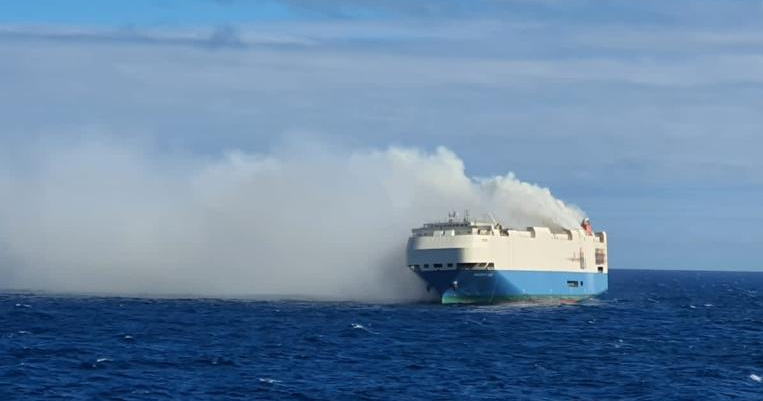Volkswagen’s car supply headaches have been added to by a blaze on a cargo ship containing thousands of Audi, Porsche, Lamborghini and VW vehicles.
Franchised car retailers in the US are contacting expectant customers to inform them of the incident aboard Felicity Ace, a vessel roughly the size of three football fields, according to recent reports by Bloomberg.
The news outlet reported that the ship – destined for a port in Davisville, Rhode Island – caught fire near the Azores islands in the Atlantic Ocean on Wednesday (February 16) and all 22 crew members were successfully evacuated.
Volkswagen’s car supply headaches have been added to by a blaze on a cargo ship containing thousands of Audi, Porsche, Lamborghini and VW vehicles.
Franchised car retailers in the US are contacting expectant customers to inform them of the incident aboard Felicity Ace, a vessel roughly the size of three football fields, according to recent reports by Bloomberg.
The news outlet reported that the ship – destined for a port in Davisville, Rhode Island – caught fire near the Azores islands in the Atlantic Ocean on Wednesday (February 16) and all 22 crew members were successfully evacuated.
But almost 4,000 Volkswagen Group vehicles remain aboard the stranded ship, with over 1,000 Porsches and new VW Golf GTI, Golf R, and ID.4 models among the cargo.
The Portuguese Navy, which was deployed to carry out the crews's evacuation, reported yesterday that it would continue to monitor the ship, which remained ablaze.
Luke Vandezande, a spokesperson for Porsche in the US, told Blomberg that customers affected by the incident are being contacted by their dealers.
News of the cargo ship blaze comes just weeks after Germany’s Manager Magazin reported that the Volkswagen Group expects to produce fewer cars in 2022 due to semiconductor supply troubles.
VW is said to be making plans based on an expectation that the current shortage of semiconductor microchips could last until at least early 2023, it said.
Speaking to AM last month, Pendragon chief executive Bill Berman suggested that new and used car supplies could take up to eight years to recover after component shortages and COVID-19 factory closures.
Berman said: “The way I see it – after the impact of supply shortages and COVID lockdowns – it’s likely to take five, to seven, to eight years for the new vehicle production cycle to get back up there.”
Login to continue reading
Or register with AM-online to keep up to date with the latest UK automotive retail industry news and insight.















Login to comment
Comments
No comments have been made yet.